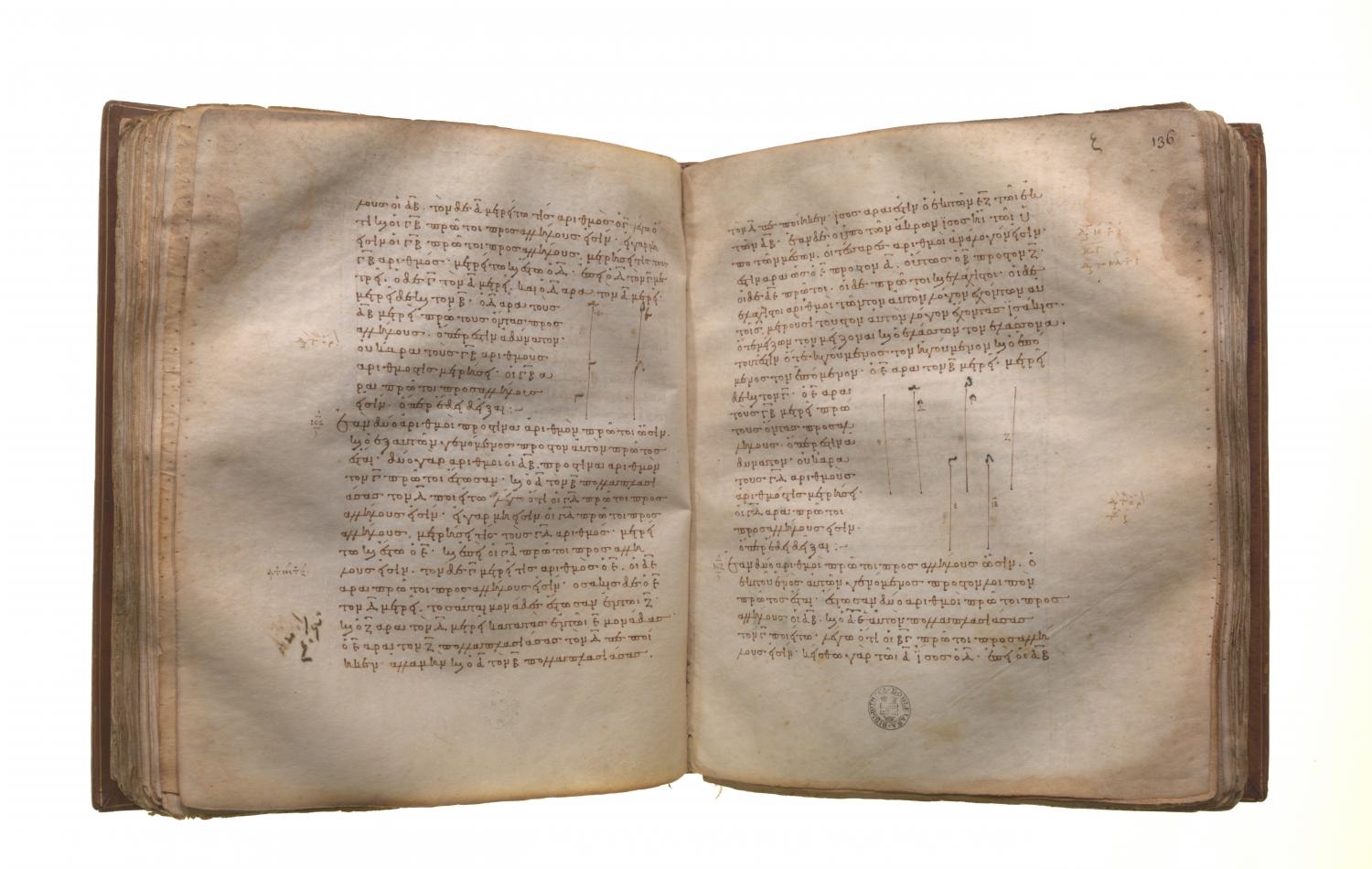Translations
If two numbers be prime to any number, their product also will be prime to the same. For let the two numbers A, B be prime to any number C, and let A by multiplying B make D; I say that C, D are prime to one another. For, if C, D are not prime to one another, some number will measure C, D. Let a number measure them, and let it be E. Now, since C, A are prime to one another, and a certain number E measures C, therefore A, E are prime to one another. [VII. 23] As many times, then, as E measures D, so many units let there be in F; therefore F also measures D according to the units in E. [VII. 16] Therefore E by multiplying F has made D. [VII. Def. 15] But, further, A by multiplying B has also made D; therefore the product of E, F is equal to the product of A, B. But, if the product of the extremes be equal to that of the means, the four numbers are proportional; [VII. 19] therefore, as E is to A, so is B to F. But A, E are prime to one another, numbers which are prime to one another are also the least of those which have the same ratio, [VII. 21] and the least numbers of those which have the same ratio with them measure those which have the same ratio the same number of times, the greater the greater and the less the less, that is, the antecedent the antecedent and the consequent the consequent; [VII. 20] therefore E measures B. But it also measures C; therefore E measures B, C which are prime to one another: which is impossible. [VII. Def. 12] Therefore no number will measure the numbers C, D.
